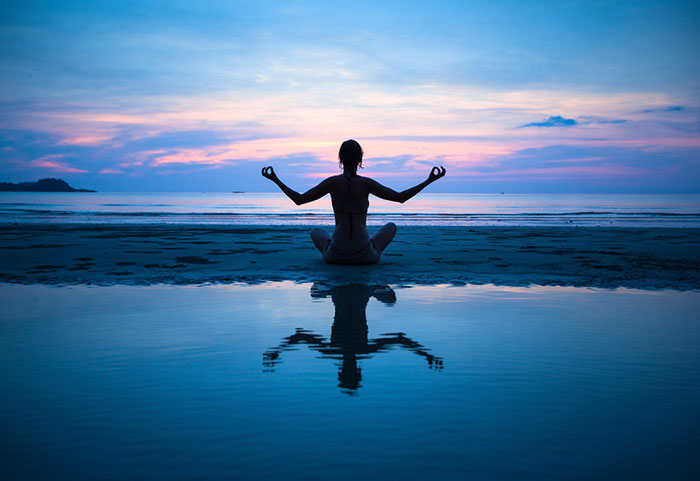“The greatest mistake in the treatment of diseases is that there are physicians for the body and physicians for the soul, although the two cannot be separated.” — Plato
When we talk about healing, we refer to more than just bodily cures. Yes, we may “cure” an illness, but are we healed? Healing encompasses our mind, spirit, and body. How do we achieve this balance? We discussed techniques for dealing with stress surrounding a cancer diagnosis and treatment: these can be used with traditional medical practices to augment treatment. When we face something as serious as cancer, we should take a balanced approach with our eyes towards healing, not just curing.

While conventional (allopathic) medicine has focused on the physical treatment of cancer, complementary and alternative modalities offer other benefits. I recommend that individuals use their own intuition, listen to their heart, and choose the modalities that they feel will work best for them. I encourage each person to listen closely to the diagnosis (but not prognosis!) of conventional medicine and if surgery is recommended, by all means, follow that directive. (Be sure to get a second or even third opinion in every case.)
It has been my experience that by the time a problem has festered to the point that a cancer exists, we need all hands on deck to remove it – a surgeon to remove the tumor, an oncologist for stray cells, an acupuncturist to help maintain balance, and a practitioner of Energy Medicine to address the core issues so that the cancer doesn’t return. Other treatments that can be helpful are homeopathy for the root physical cause, naturopathy for overall balance, a nutritionist to build strength and decrease the toxic load, and tai chi, yoga, relaxation methods, and massage.
The use of counseling or psychotherapy can also be very beneficial. When treating cancer and other serious illnesses, it is important to get to the root cause and treat the problem, not merely the symptoms. Integrative medicine allows for a beneficial cycle: our work healing our wounded minds and spirits allows our bodies to open up and receive the benefits of conventional medicine. With a stronger body, we achieve a greater energy flow, and thus a more balanced spirit and mind. They are interconnected, and more and more conventional doctors are seeing this truth.
The American Cancer Society says of complementary medicine: Some people believe that mainstream medicine is the only option they have when it comes to treating symptoms and side effects, relieving pain, and improving quality of life. Actually, there are many complementary treatment methods you can use safely, right along with your medical treatment. For example, some people find that certain complementary methods — such as aromatherapy, biofeedback, massage therapy, meditation, tai chi, or yoga — are very useful to help control some of their symptoms and improve the quality of their lives.
They treat the mind and spirit, which in turn is essential to the body’s health. A basic tenet of complementary medicine is that the body has the ability to heal itself. Practitioners are there to guide us through this process.
To aid us in our goal of achieving greater balance in our energy centers, various techniques and therapies are available. Let’s quickly look at the most prominent.

- Acupuncture. Very thin needles are inserted in the body at specific points. These points correspond to chi pathways called “meridians.” Chi is our life force, our energy. It is believed that acupuncture can open blocked pathways and stimulate energy flow. This is essential to having a balanced mind/body connection. Studies have shown that acupuncture can help relieve pain, lessen fatigue, relieve nausea, and reduce vomiting – all important considerations for cancer patients.
- Meditation. Meditation is one of the quickest ways to calm the body and the mind and prepare it to heal. Studies show regular meditation lowers blood pressure, regulates heart rate, and reduces levels of stress in the body; perfect for those looking to heal or avoid cancer.
- Massage. Massage helps you connect to your body and emotions and is very nurturing. Using pressure on various points along the body, the therapist unblocks energy and restores a more balanced flow. Anecdotal evidence suggests that Shiatsu helps relieve pain in the shoulders, neck, back, and head and reduces muscle stiffness and tension.
- Prayer. Religions the world over advocate prayer for spiritual well-being, and now science is finding that it is beneficial for physical health as well. Both praying and being prayed for have been shown to improve prognosis and quality of life. By helping to reduce anxiety and stress and by fostering a more positive attitude, prayer can be a powerful tool in our journey of healing.
- Energy Healing. It aids by balancing your energy and removing blockages that could interfere with treatments like chemotherapy; it helps the individual get to the root cause and make changes at that level.
These are just some of the many complementary techniques that are available for cancer patients. As a sign that our society is finally realizing that the mind plays an integral role in the body’s health, more and more doctors are referring patients for complementary therapies, and medical schools now offer training in CAM (complementary and alternative medicine). Even the insurance companies are coming on board as they are beginning to cover many of these therapies. The United States government even established the National Center for Complementary and Alternative Medicine. The NCCAM is committed to studying the efficacy of CAM, training researchers, and providing coherent, thorough information to physicians and patients. All of these are positive signs that our society is being to understand the importance of healing, not just curing.

Cancer as Healer
And, as extraordinary as it may sound, cancer can be healing in itself. The following cancer survivors have offered their views of their struggles and their triumphs:
Marianne Faithfull, an English actress and singer, has said of her recovery from breast cancer, “It has been an extraordinary experience and, in many ways, extremely positive.”
Lance Armstrong, world renowned bicyclist and hero to many, has said of his battle with cancer, “The truth is, if you asked me to choose between winning the Tour de France and cancer, I would choose cancer. Odd as it sounds, I would rather have the title of cancer survivor than winner of the Tour, because of what it has done for me as a human being, a man, a husband, and a father.”
And…”If there is a purpose to the suffering that is cancer, I think it must be this: it’s meant to improve us.”
These people and millions others have found healing in the midst of suffering. They did not merely experience a “cure” for their cancer: they found lasting, purifying strength that led to healing of the body and mind. I know it’s true, because it happened for me too.
Let’s recall the words, “Cancer is a word, not a sentence.” Perhaps, though, it should be. Not a death sentence, but a sentence that mandates that we find balance and peace in our lives.

Recent Comments